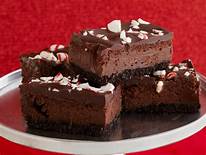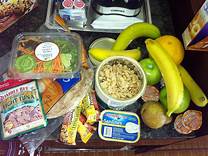Importance of well balance diet
All food contains all of the nutrients we need to be healthy, it is necessary to eat various foods in sufficient amounts. A good diet will include many different foods, and sufficient in quantity and quality to meet an individual’s need for food energy and other micro nutrients.
BROCCOLI
Typical serving size:
½ cup, cooked (36 g)HOW IT HARMS
WHAT IT HEALS
BROCCOLI FACT
One of the most nutritious and studied vegetables, broccoli has an abundance of vitamins, minerals, and other powerful disease-fighting substances that give it the ability to protect against many common cancers among other diseases
Nobody is sure why, but broccoli seems to be even more protective than other cruciferous vegetables (members of the cabbage family)
Broccoli contains sulforaphane, which may help to stop the spread of cancer
In some laboratory tests, it has been shown to reduce the spread of tumors, and reduce the number of carcinogens and free radicals in the body
Health Benefits
Prevents bladder cancerOne study found that men who ate 5 servings or more per week of cruciferous veggies were half as likely to develop bladder cancer, one of the most common cancers, over a 10-year period as men who rarely ate them
Broccoli and cabbage were singled out as the most protective foods
Reduces risk of colorectal cancer
This vegetable is packed with folate, fiber, and antioxidants that may reduce the risk of colorectal cancer
Increases breast cancer survival
Eating broccoli and other cruciferous vegetables may improve your odds for breast cancer survival, a new study suggests
Of women in China diagnosed with breast cancer, those who consumed the most cruciferous vegetables were 62% less likely to die of breast cancer and 35% less likely to have a recurrence of the disease, compared with those who consumed the least
Helps fight lung and heart disease
The sulforaphane in broccoli may help your body fight off the infections that cause inflammation in the lungs and arteries
Keeps bones strong
The vitamin K in broccoli helps boost bone health
Helps fight colds
Broccoli contains high levels of vitamin C—the vitamin that can help stave off colds
Gives skin a healthy glow
Broccoli’s vitamin C helps create collagen, which plays a role in healthy skin
Helps with weight loss
Most Americans consume too little vitamin C, and one study showed that adults deficient in vitamin C may be more resistant to losing fat
Conversely, people who had adequate vitamin C levels burned 30% more fat during a bout of exercise than those low in C
Health Risks
Bloating and gasAlthough filled with fiber and vitamins, broccoli can also cause gas and bloating
QUICK TIP:
Nutritious cooking techniques The best ways to cook broccoli are to steam it, roast it, cook it in the microwave, or stir-fry it with a little broth or waterThese methods are better than boiling
Some of the vitamin and mineral content are lost from the vegetable and end up in the cooking water when it is boiled
Cooked broccoli should be bright green in color, and tender enough so that it can be pierced with a sharp knife and still remain crisp
Allergies
Buying Tips
Good color indicates high nutrient value
Stalks that bend or seem rubbery are of poor quality




